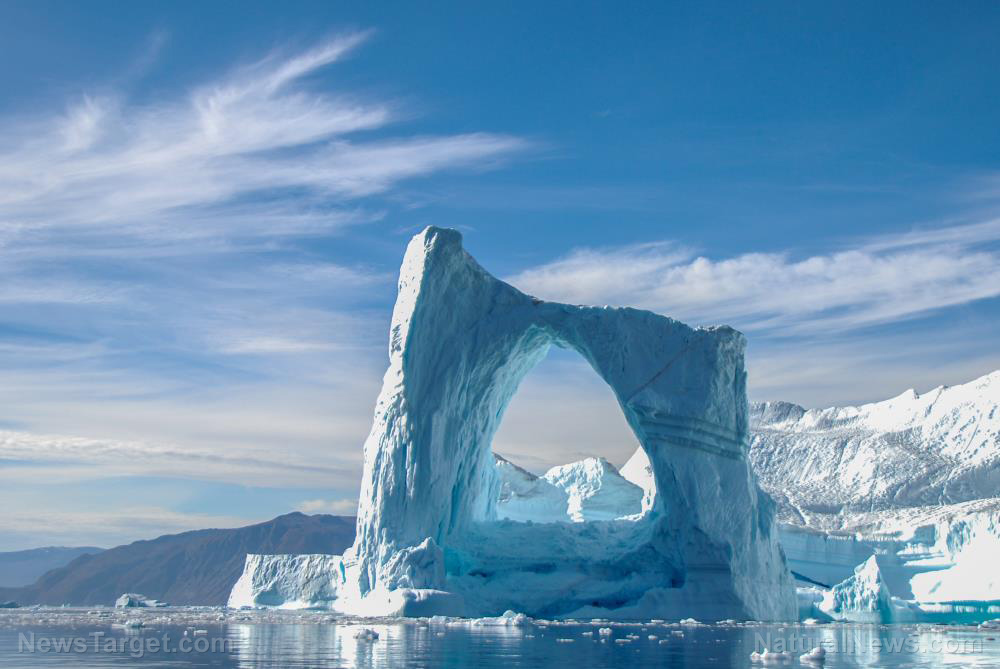Podcaster blasts climate alarmists and their consistently wrong predictions
06/12/2022 / By Belle Carter

A podcaster with Twitter handle @lightbulbsharin has condemned so-called experts for instilling climate alarmism through predictions that are often unwarranted and consistently wrong.
“The climate is changing, climate always changes. But they’re talking about climate alarmism, and try to use it as a justification to essentially destroy the human race. They use things like 97 percent of scientists’ consensus is this and that and they completely gloss over the fact that there have been multiple predictions that have never come true,” he said during the June 9 episode of “The Lightbulb Initiative.”
During the show, the host cited examples of failed climate predictions and showed how the so-called experts move the dates of the predictions once they didn’t materialize.
In 1970, there was a claim that there will be another ice age by the year 2000. It obviously didn’t happen, so the so-called experts updated their prediction and said there will be a “mini ice age” by 2030.
Another prediction is from a Pentagon report in 2004 that warned the United Kingdom’s climate to be like Siberia by 2020. In the said year, U.K.’s climate included record-breaking rainfall; record dry and sunny periods; and a summer heatwave. So they updated the prediction to “10 areas of the U.K. could be underwater by 2050 because of rising sea levels.”
The host also warned the public to be aware of the word “consensus” as used by “authorities.” He cited the article “Scientific Consensus: Earth’s Climate Is Warming” on the National Aeronautics and Space Administration (NASA) website.

At the bottom of the webpage is a disclaimer that says: “Technically, a ‘consensus’ is a general agreement of opinion, but the scientific method steers us away from this to an objective framework. In science, facts or observations are explained by a hypothesis (a statement of a possible explanation for some natural phenomenon), which can then be tested and retested until it is refuted (or disproved). As scientists gather more observations, they will build off one explanation and add details to complete the picture. Eventually, a group of hypotheses might be integrated and generalized into a scientific theory, a scientifically acceptable general principle or body of principles offered to explain phenomena.”
In other words, they are jus scientific opinions – not scientific facts.
“It doesn’t matter if 100 percent of people have the same opinion. That does not make it fact,” the podcast host pointed out. “It’s about climate alarmism and utilizing it to keep you afraid, just like they did with the pandemic. Because a frightened populace is easier to control, easier to manipulate and will give up freedom for the perception of safety, not actual safety.”
Steer clear from the anxiety brought by climate alarmism
It is a given fact that conversations about climate change can be blown into climate alarmism and can be overwhelming and mentally disturbing, especially to the younger generations. Bas Fransen of EcoMatcher has suggested some alternatives on how to deal and steer clear from it
The American Psychiatric Association defined eco-anxiety as: “The chronic fear of environmental disaster that comes from observing the seemingly irrevocable impact of climate change and the associated concern for one’s future and that of the next generations.”
It is good to spend time in nature. Some studies found that going for walks in nature without technology, or meditating in nature, can be beneficial for people with eco-anxiety. Gardening, planting trees or other activities that connect to the natural world can also be helpful.
Educating oneself is also a great weapon in dealing with alarmism. Climate change can be a scary concept. But any meaningful conversation that is based both on science and emotion would begin with adults thoroughly educating themselves first so that they can explain it rationally to a younger person.
Use sensational messages carefully. Researchers suggest that images that may cause fear should be used sparingly, within context and combined with other types of visual representation to paint a better picture.
Results-oriented conversations that motivate action might be more effective than any other kind. Shifting the perspective from “We can’t do anything” to “What can we do within our power?” is a great way to assess the resources at hand and put together a solid action plan.
Visit ClimateAlarmism.news for more news related to the fearmongering tactics of climate alarmists.
Watch the full June 9 episode of “The Lightbulb Initiative” below.
This video is from The Light Bulb Initiative channel on Brighteon.com.
More related stories:
South Australia declares climate emergency in preparation for coming climate lockdowns.
Like COVID-19, climate alarmism is a tool global elites wield to control our lives.
Sources include:
Submit a correction >>
Tagged Under:
alarmism, climate alarmists, climate experts, consensus, conspiracy, deception, eco-anxiety, environmental disaster, ice age, NASA, unwarranted predictions
This article may contain statements that reflect the opinion of the author




















